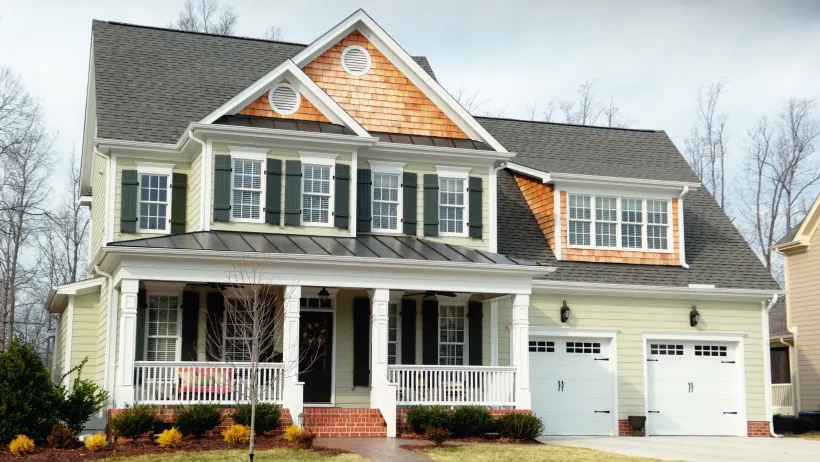In the bustling Greater Toronto Area (GTA), the decision between renting and buying a home is more than just a financial choice; it’s a life decision that affects your daily living, long-term goals, and financial health. This in-depth analysis explores the various facets of renting and buying in the GTA, considering financial implications, market conditions, lifestyle factors, and long-term consequences to guide you in this significant decision.
Financial Considerations
Renting
Short-Term Financial Impact: Renting primarily involves paying a monthly rent and utilities. The upfront costs are usually limited to security deposits and first and last month’s rent. This can be advantageous for those who lack the savings for a substantial down payment required in home buying.
Long-Term Financial Perspective: While renting offers a predictable monthly expense, it also means paying for a living space without gaining equity. Rent payments go to the landlord, and there’s no return on investment as you’d have with property ownership. However, renting can be a strategic choice if it allows you to save and invest in other areas.
Buying
Initial Costs: The upfront costs of buying a home in the GTA can be substantial. These include the down payment, closing costs (like legal fees, land transfer taxes), and other expenses such as home inspection fees and mortgage insurance, if applicable. This can require a significant amount of savings.
Mortgage Considerations: Monthly mortgage payments contribute to building equity in your property. Over time, this can turn into a significant financial asset. However, homeowners are also responsible for ongoing costs like property taxes, home insurance, and potentially, mortgage insurance.
Other Financial Responsibilities: Homeownership brings with it a range of additional expenses, including maintenance and repairs, which can be unpredictable and costly. These costs must be budgeted for and can fluctuate, adding a layer of financial uncertainty that renters do not face.
Market Conditions
The GTA housing market is known for its volatility and rapid changes, which can significantly influence the rent vs. buy decision.
Renting in a Dynamic Market: Renting can be a more viable option in the short term, especially in a market where housing prices are high. Renters have the flexibility to move without the financial and logistical complexities of selling a property. This can be particularly advantageous if the market experiences a downturn.
Buying in a Rising Market: In a market where property values are increasing, buying a home can be a sound investment. Home equity can grow substantially as the market value of the property increases. However, entering the housing market requires timing and an understanding of market trends to maximize this benefit.
Lifestyle Considerations
Your lifestyle and personal preferences play a significant role in deciding whether to rent or buy.
Flexibility of Renting: Renting offers more flexibility and is often preferred by those who may need to move frequently, whether for work or personal reasons. It also relieves individuals from the responsibility of home maintenance and repairs, as these are typically the landlord’s responsibility.
Stability and Personalization in Buying: Buying a home provides a sense of stability and permanence. It allows for personalization of the living space – renovations and decorations can be done without seeking a landlord’s permission. Homeownership can also foster a sense of community and belonging, as long-term residents often form deeper connections with their neighborhood.
Long-term Implications
Renting Long-term: While renting provides flexibility and the opportunity to invest savings in other avenues, it also means a continuous outflow of funds with no return in terms of property investment. Additionally, renters are subject to annual rent increases and the uncertainty of lease renewals.
Building Equity through Buying: Buying a home in the GTA can be an effective way to build wealth over the long term. As you pay down your mortgage, your equity – the home’s value minus any debts against it – increases. This can be a significant financial resource later in life, whether you choose to sell the home, leverage its equity, or pass it on.
Risk Considerations
Renting Risks: The primary risk of renting is the lack of control over the property. Rent increases and eviction for redevelopment or sale are real risks. Additionally, the lack of equity building means that long-term financial benefits are not realized through renting.
Buying Risks: The risks of buying a home include potential depreciation in property value, the financial strain of mortgage payments, especially if interest rates rise, and the cost of unexpected repairs. The illiquidity of a property also means it can’t be quickly converted into cash if financial needs arise.
Conclusion
Deciding between renting and buying a home in the GTA involves a careful evaluation of your current financial situation, long-term goals, lifestyle preferences, and risk tolerance. While renting offers flexibility and less financial burden in the short term, buying a home can be a valuable long-term investment and provide stability and personal satisfaction. It’s essential to assess both options in the context of the current real estate market, your financial capacity, and your personal life circumstances.
Consulting with real estate professionals, financial advisors, and perhaps even a mortgage broker can provide further insights tailored to your situation. Ultimately, the best choice is subjective and depends on your unique circumstances, preferences, and goals. Whether you choose to rent or buy, the decision should align with your overall life plan and financial strategy, ensuring that your home is not just a place to live, but a foundation for your future.

